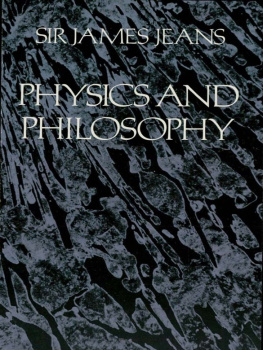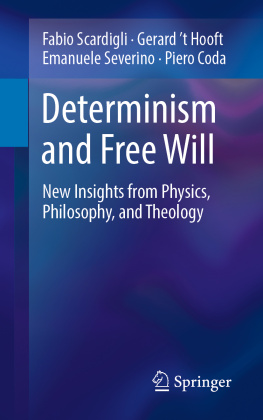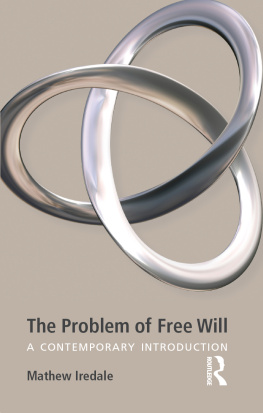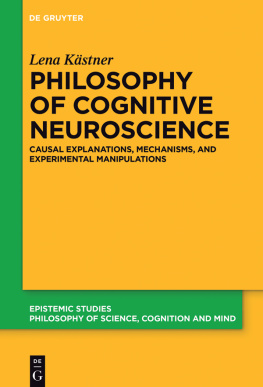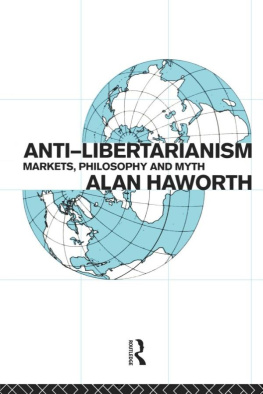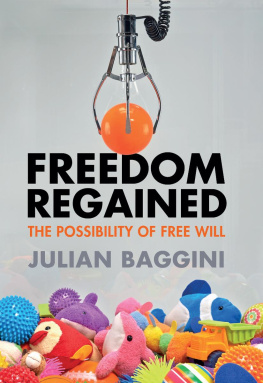
The Science of Freedom / Michael Abraham
Copyright 2018 Michael Abraham
All rights reserved; No parts of this book may be reproduced or transmitted in any form or by any means, electronic or mechanical, including photocopying, recording, taping, or by any information retrieval system, without the permission, in writing, of the author.
Translation from the Hebrew: Avi Woolf
Contact: mikyab@gmail.com
Dedicated with love to my wife Dafna and my children Nachman, Bruria, Moshe Gershon, Shlomo, Yossi and Rivkah.
When you have eliminated the impossible, whatever remains , however improbable, must be the truth?
Sherlock Holmes
The path of people who say we are masters of our deeds, what we do, we do from knowledge. I cannot say so, everything I do would seem that if I had control, I would not have done it.
I will return to the matter and relate what happened after the opening was opened before me and I entered the house, we were in one room, which as most simple houses in our city did not have a corridor but rather a man opens the door which opens out into the street and finds himself standing in one of the rooms of the house. The room was neither small nor large nor even medium, but one of those rooms whose dimensions are hard to estimate due to their structure.
Shai Agnon, Tachrich Shel Sipurim
Contents
Introduction to the English edition
The Science of Freedom, is the first of my books to be translated into English. I wrote it out of the feeling that the subject of freedom of will is not getting proper treatment in the popular literature, and in the professional literature as well, (in the fields of philosophy and neuroscience), its treatment is inadequate and includes many inaccuracies. My purpose in this book is to defend the concept of freedom of will, an approach that has become increasingly unacceptable in scientific and philosophical circles, mainly as the result of the rapid development of the neurosciences.
To my delight, the book was a great success in Israel, and I received quite a bit of feedback that it fills a void that exists in the literature dealing with freedom of will and especially with regard to recent findings of the present generation of studies of brain research. My recognition of this deficiency and the need and importance of filling it convinced me to take the expensive and complex step of translating this book, in particular of all of my books, into English. I hope and trust that this English edition will be as well accepted throughout the world.
My thanks to Yedioth Books in Israel for their assistance in publishing and distributing the book in Hebrew, and of course to the translator Avi Wolf, and to all of the staff of the English publisher, eBookPro and to their head Benny Carmi, and to Kim Ben Porat and Barry Rosenfeld, for their dedicated and professional work without which I could not have made it up to now. It is also my pleasure to thank Oren Margalit for his invaluable help and initiative.
I would be very pleased to receive feedback and comments from readers to my email: mikyab@gmail.com
Cogito Ergo Sum
I Think, Therefore I Am
Rene Descartes (Cartesius in Latin) was a French philosopher, scientist, and mathematician who lived in the sixteenth and seventeenth centuries. His main claim to fame was his classical philosophical argument known as the cogito, based on the Latin phrase Cogito Ergo Sum, which is usually translated as I think, therefore I am.
Descartes searched desperately for a solid foundation for the philosophy and science he wished to develop and which he ultimately did succeed in forming. He was greatly troubled by the lack of certainty in philosophy that is, the fact that almost any argument (and certainly factual argument) could be accepted or rejected without there being a contradiction, and this means that every last thing we know is uncertain.
As a result, the basis for every philosophical, theological, and scientific approach seemed shaky to him. Its important to understand that Descartes lived and operated in the time before the growth of the British empiricism of Locke, Hume, and Berkeley which emerged very much as a counterpoint to his own rationalist form of thought.
We should therefore not be surprised that as far as he was concerned, the supreme and primary tool for ensuring certainty was the intellect, that is thought, and not necessarily observation. As far as he was concerned, observation as such was not a reliable source for certain truths unless it is properly established that is, based on truths derived from the intellect.
For this reason, he could not rely on observation in trying to find a certain Archimedean point for his philosophy. He had to search for an argument which stood on its own that is, which was not based on observation of the sort which could not be doubted or questioned. His mode of thought is described in a number of the books which he wrote, and his thought process is a little different in every one of them with the formulation of his conclusions being appropriately different as well. Here we will point to the main outlines of his argument, as well as one difference between the various sources in his writings which will serve us below.
Descartes Skeptical Dive
Descartes began his philosophical inquiry by doubting anything and everything which could be doubted. He was not willing to accept any arguments as given, even those which seemed obvious. He raised the possibility that a demon was deceiving him or perhaps some mental illness was forcing him to arrive at the wrong conclusions. At this skeptical stage, he was not willing to accept that what he sees actually exists, including the argument that God exists (something which he considered obvious).
Its important to understand that Descartes did not really believe in such a radically skeptical position. His skeptical attack was a deliberate philosophical line of thought whose purpose was to ultimately arrive at a rock solid argument which would serve as a solid basis for philosophy and science, which Descartes never stopped believing in throughout his inquiry. To find this foundation, he chose a methodological approach of doubting anything which could be doubted. He waited to see what was left after he removed all such arguments and beliefs, in the hope that he would find his desired point of certainty, which to him was the only worthy solid foundation for his philosophy and science.
The Cogito Principle
At the end of the process, Descartes arrived at the surprising conclusion that such an argument does indeed exist. contains a slightly different formulation: I cast doubt, therefore I am.
If I doubt my very existence, this is a sign that there is someone doing the doubting (or someone who thinks it). Therefore it cannot be that I will doubt my very existence. If I doubt, then I (that is, the one doing the doubting) exist, and therefore the doubt itself disappears. Descartes is effectively arguing here that my ability to cast doubt is the proof of my existence. I can therefore doubt or question almost anything, but not my very presence.
The Innovation of the Cogito
As many of his interpreters pointed out, this is a partial and inaccurate presentation of the argument. Every logical argument bases its conclusions on an assumption or assumptions, and if we reject one of these assumptions then we are not obligated to accept the conclusion. In our example, if someone comes and says It isnt true that I doubt or It isnt true that I think, then he is naturally exempt from the conclusion that I am. After all, our attitude towards the conclusion depends on the truth of the assumptions.
Next page

